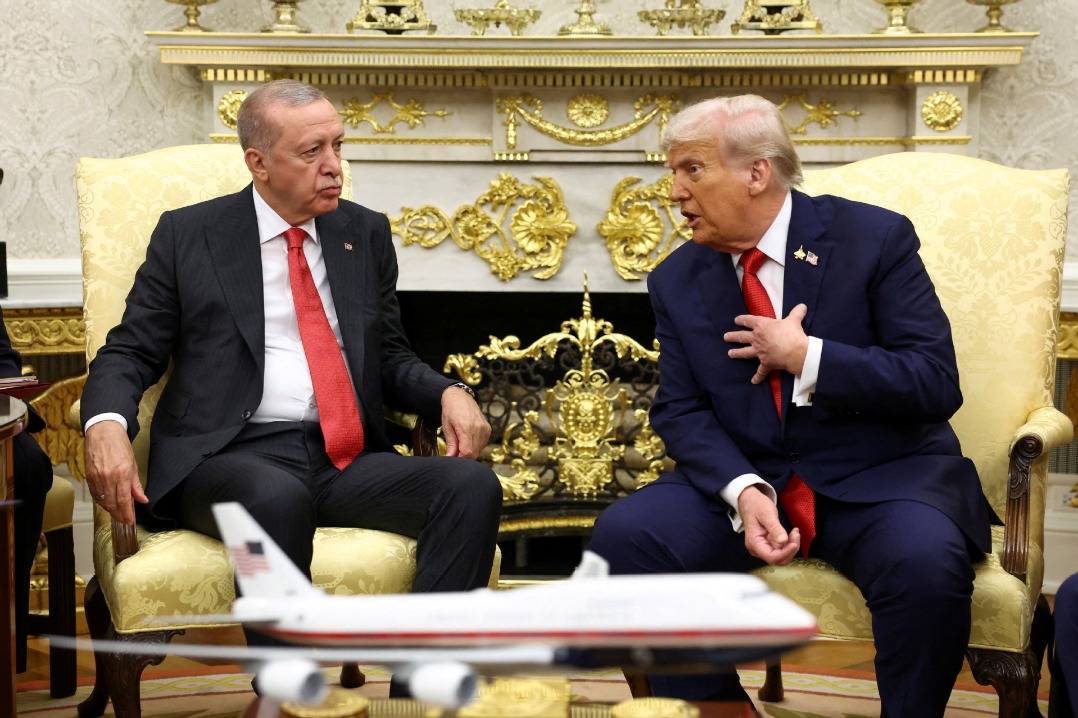Raising bar on pollution to lower readings

Following the encouraging news from the Energy Policy Institute at the University of Chicago (EPIC) last week - that the improvements in air quality in some of China's most populated areas have been "remarkable" - Reuters reports that China will set even more stringent targets for improving the nation's air quality under a new three-year plan.
This comes as Beijing prepares to strengthen a nationwide crackdown on polluters in its years-long campaign to clear its notoriously toxic skies, Reuters reports.
The new targets for concentrations of small, breathable particles known as PM2.5 will be lower than those in the country's current five-year plan that was due to end in 2020, environment minister Li Ganjie said at a briefing on the sidelines of the country's annual Parliament on March 17.
Those improvements, the EPI study found, ranged from -21 to -52 percent and in most cases surpassed the goals set by the National Air Quality Action Plan of 2013.
In January, the Ministry of Environmental Protection (MEP) said it was drawing up plans for tougher curbs on smog during the next three years to 2020 after a five-year crackdown on pollution helped it attain air quality targets in December.
Li declined to give further details of the new goals as they are still being worked out.
By the end of 2017, the country had already cut PM2.5 concentrations by around 15.8 percent, not far from the target of reducing average levels for cities by 18 percent by 2020.
"So we will set a lower target for the new three-year plan," he said.
The government will also set up a nationwide inspection system this year, which will give responsibility for regular checks on polluting companies and factories to local authorities, in addition to central government, he said.
The government will also punish local authorities who do not enforce the regulations correctly, he said. In some regions last year, regional governments issued blanket orders for companies to close even if they complied with tough emissions rules, he added.
The "one size fits all" strategy by some local authorities will not be tolerated, he said.
His comments come after the government announced this week the 10-year old MEP will be transformed into a more powerful Ministry of Ecological Environment, absorbing duties overseeing river, marine and soil pollution, as well as climate change held by other ministries and departments.
The new watchdog agency could have some observers breathing easier. Still, some worry that the approach may oversimplify what is really going on. Pollutant monitor readings are just numbers, they argue, that don't always reflect the systemic picture.
The placement of pollutant monitors, for instance, may not always correspond to human exposure. They may also not take into account other toxic gasses and particulate pollutants in the air.
Some of these unknowns and unobserved and unmeasured substances can have health consequences for vulnerable populations, especially the young, the aged and people dealing with chronic disease.
Still, as the EPIC report says, the progress is encouraging.
"Although concentrations [of PM2.5] are still above China's own standard and well above WHO [World Health Organization] guidelines, these data indicate that the country has achieved remarkably cleaner air in the very short period of four years," EPIC director Michael Greenstone writes.
The road ahead to clean is still a long one and the EPIC report suggests using tools that go hand-in-hand with compatible goals like economic growth and poverty alleviation, such as tax incentives and cap and trade.
The report also points out that China has achieved in four years what it took the US 12 years to make happen after the Clean Air Act of 1970.
But as one observer told me, "Economists and journalists were not on the front lines of establishing monitoring networks, developing emission control strategies and evaluating potential health effects and impacts on life spans," but rather the work was done "by very knowledgeable technical environmental scientists and engineers".
Contact the writer at chrisdavis@chinadailyusa.com

































